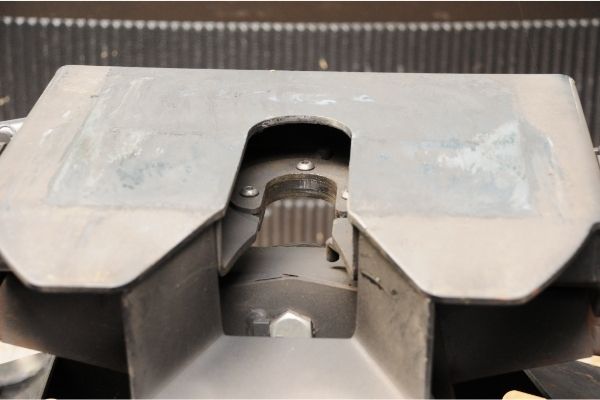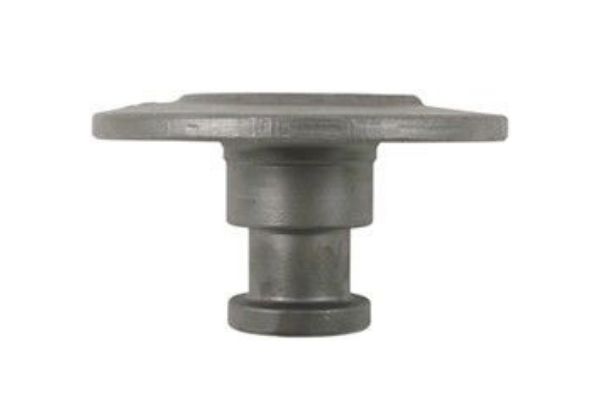You might be considering a 5th wheel RV as the ideal option for your camping lifestyle, and you are wondering what you really need to know before you pull out your wallet to purchase your first unit. There are several things to consider before you can safely get behind the wheel and drive that 5th wheel off the dealer lot. There will be a little bit of math involved. Here are the steps to figure out if you can tow the 5th wheel you are looking at:
- Decide on a rough layout you want in your trailer
- Find the weight of the 5th wheel Rig you are interested in. look for the UVW (unload vehicle weight) sticker on the unit.
- Look for the maximum weight that can be added to this trailer GVWR (Gross vehicle weight Rating)
- Subtract the GVWR from the UVW and you have the total weight that you can add to this 5th wheel rig. So, it looks like this GVWR-UVW = total personal effects weight.
- The typical weight of personal effects in a Rig of this size is typically 1,800 to 2,000 lbs.
- Add the personal effects to the UVW and that is your total weight. UVW + personal effects weight = total weight. Make sure that this number does not exceed the GVWR weight.
- 20% of your weight in the trailer will be on the pin attached (PIN WEIGHT) to your 5th wheel. So calculate this by taking the UVW + personal effects weight= total gross weight X .20 = Pin Weight.
- Now to calculate the people in the truck and the other things that might be carried in the truck including the hitch. (usually anywhere from 1,000 to 1500 lbs).
- When looking at trucks to match up with towing, you need to look at what the PAYLOAD CAPACITY of what the truck can handle. Remember that the truck is carrying 20% of the total weight or pin weight (UVW plus personal effects multiplied by .2, plus what is passengers & other hitch = total weight).
- Does the total pin weight plus the cabin weight & hitch weight exceed the total payload capacity of your truck or the truck you are looking to purchase to tow this 5th wheel?
Here’s a real example:
The 5th Wheel Trailer
Explorer Arctic Wolf 5th wheel floor plan 287BH
| GVWR | 11,525 lbs |
| UVW | 8,368 lbs |
| Max Cargo Weight | 3,157 lbs |
Trailer Calculations:
Weight of trailer & personal effects: UVW 8,368 lbs + 2500 lbs (personal effects) = 10,868 lbs
Pin weight Calculations: 10,868 lbs X .20 (pin weight percent) = 2,173.6 lbs
Cargo, Passenger And Hitch Weight Calculations:
| 4 passengers (avg weight 150) | 600 lbs |
| Tools & other stuff | 200 lbs |
| 5th wheel hitc | 200 lbs |
| Total | 1000 lbs |
Calculating Hitch & Cargo Weights
Pin Weight + Cargo Weight = needed payload weight of the truck required to tow
2,173 lbs + 1000 lbs = 3,173 lbs (payload required in the truck)
So based on these calculations we need a truck that can handle a payload of 3,173 lbs. We want to be conservative and make sure that the truck can handle more than is required since we could add more weight to the trailer and having more capacity in the truck makes for a stable and safer tow. So as a minimum we would be looking at a Ford F250, Chevy Silverado 2500, Ram 2500, GMC Sierra 2500 HD, and Nissan Titan XD. There is never any concerns if you go larger.
The Truck For Towing
FORD f250 SRW 4×4 Regular cab
| GVWR | 9,900 lb |
| Max Payload Capacity | 3,700 lb |
So, from this real world example the Ford f250 can handle a payload of 3,720 lbs, which is greater than our total weight of 3,173 lbs, but barely. There is only a spread of 317.3 Lbs. In this situation, it would be best to upgrade the truck to allow for greater towing capacity.
Finally, you have the estimated numbers and matched it with the truck, you need to pull your fully loaded trailer to a Cat Scale weigh station and weigh the total weight of your truck to get the exact weight.
How Much Truck Do You Need To Tow A 5th Wheel?
Selecting the right truck to tow your 5th wheel for the safely arrive at your destination and the safety of others on the road. A ¾ ton diesel truck is really an entry point into towing a typical 5th wheel with an average weight of 15,000 lbs.
To get an exact match to the 5th wheel trailer you have selected, you will need to do some math to calculate the safe towing capacity to match it to the right sized truck. It starts with the UVW (unloaded vehicle weight) of the trailer, plus your personal effects, while not exceeding the GVWR (gross vehicle weight rating) of the trailer, multiply that by 20% to find the PIN WEIGHT. Plus, passenger weight, and other weights., which is the amount of weight on the vehicle, or the payload capacity required in the truck. Now it’s time to find the truck that can handle the payload capacity of the 20% weight of your trailer and all its effects & passenger.
Here’s an example:
| Average 5th wheel trailer & personal effects | 15,000 lbs |
| Passenger & personal items | 1,000 lbs |
| 20% weight on the pin of the truck | 3,200 lbs |
As a rule with an average weight of a typical 5th wheel at 13,000 lbs UVW and 2000 lbs for personal effects, which is 13,000 + 2,000 = 15,000 Plus 1000 lbs for passengers & hitch equals 16,000 lbs.
X 20% = 3,200 lbs for payload weight for the truck that is selected.
What Are The Different Parts To A 5th Wheel Hitch?
There are several parts you need to get familiar with when it comes to 5th wheels. Here are the different Parts
Hitch Coupler – Part located in the bed of the pickup truck. This flat assembly is either bolted or welded to the pickup truck.

Kingpin -Permanently mounted directly to the 5th wheel trailer. The kingpin mounts to the hitch coupler and allows the 5th wheel trailer to pivot during towing.

Hitch -Locking Leveler-Locks down on the bar used to release the receiver from the 5th wheel trailer pin box. Locking this will prevent the 5th wheel from detaching.
Mounting Rails – Fastened to the truck bed and attaches to the 5th wheel hitch. The hitch coupler attaches to the mounting rails.
Do 5th Wheel Trailers Sway When Towed?
Swaying is always a concern when towing trailers with a truck for numerous reasons. Generally, 5th wheel trailers typically do not sway due to the design of the trailer with the horseshoe and about 20% of the weight mounted over the rear axle of the truck. As long as the right sized truck is matched with the weight of a fully loaded 5th wheel trailer.
As a minimum three-quarter ton truck is typically required. Swaying only becomes a concern when the trailer is over weighted for the truck. 18-wheel semi-trucks have a similar design. The 5th wheel hitch coupling is mounted directly to the pickup truck bed designed to pivot and absorb bumps. This design and location of the mounted hitch eliminates side to side sway and makes for a smoother ride.
6 Tips When Towing Your 5th Wheel Trailer
In this section, there are six tips to help 5th wheel trailer owners hitch and tow the trailer successfully.
- Do not set to overdrive on the pickup truck. Most pickups have this setting. Do not be tempted to use overdrive. With a full trailer load, there is a strain on the transmission. Staying away from the overdrive option can eliminate overheating.
- Keep the lug bolts tight. Lug bolts hold your 5th wheel hitch together. Wear will loosen the bolts. Remember to pull over and inspect your lug nuts at approximately every 100 miles. Keep the lug nuts lubricated also.
- Check the tire pressure. RV tires are large and sturdy. They are still not a match for nails, rocks, sticks, and other debris. This debris can lead to flats on both the RV and pick up truck tires.
- Test the 5th wheel trailer tire pressure every morning before beginning the drive. It may seem like overkill. Be religious about checking the tire pressure. You will avoid annoying and potentially dangerous tire issues.
- Remember to use your mirrors. Remember to use the RV mirrors to make sure there is enough distance to turn and do other maneuvers. Relying solely on your pickup truck mirrors when there is a trailer in tow is not smart or safe. Consider installing extended mirrors over the pickup truck side mirrors to be sure the length of the trailer is visible.
- Do not fight the wind. A windy day may seem innocent. Windspeeds that exceed 30 to 40 miles an hr its time to reconsider travel plans. Anything beyond 50 to 60 miles an hr and you may want to exit your RV and seek permanent shelter.
The tips listed above seem elementary. Following them will lead to a more pleasant trip and help avoid unnecessary downtime.
Is There A Course To Learn Towing Techniques For My 5th Wheel Trailer
Owning a 5th wheel trailer will be much more enjoyable when learning to travel in it. One way to do this is to take a course.
Drivers do not instinctively know how to turn a 32-foot trailer or how to back it up.
There are several resources for RV owners to receive hands-on training. Some will coach in your RV. Some will suggest a visit to a local campground to learn entering the campground and correct parking at the campsite.
Get behind the wheel, learn to hitch, and unhitch, and proper turning techniques.
Insurance companies may offer a discount upon completion of an RV Driving Course.
In conclusion, a 5th Wheel Trailer is one of the sturdiest and stable campers in the industry. Sway should be minimal during towing. Choose the correct hitch to control swaying. Take time to refer to manuals and other resources when choosing a towing vehicle hitch. Determine who will install the hitch safely. Consider sway bars for additional stability. In the unfortunate event, the 5th wheel encounters sway during travel, remember the steps outlined in the article. Engage the manual brake control override and do not apply the brakes. Exit the highway and check hitch adjustments and the 5th wheel weight distribution. Check tire pressure and lug bolts often. Refrain from using your pickup’s overdrive feature when towing.
Consider an RV Driving Course to get comfortable with the 5th wheel and overall feel. The more equipped and familiar with towing the 5th wheel, the more enjoyable trips will be.
Enjoy safe and sway-free traveling with your 5th Wheel Trailer.
Can You Tow A 5th Wheel With A Half-Ton Truck?
It is possible, but not recommended. Here’s how you can tow a 5th wheel with a half-ton truck. Find a small 5th wheel that is no longer than 20 feet in length and weigh no more than 4ooo lbs. The key factor here is the weight, as a newer half-ton can tow up to 10,000 lbs. Ideally the size as a minimum, is a three-quarter ton truck, as it provides the horsepower, weight, and stability to keep your 5th wheel trailer steady when towing. A one ton or greater would perform better at towing a 5th wheel and provide the stability.




